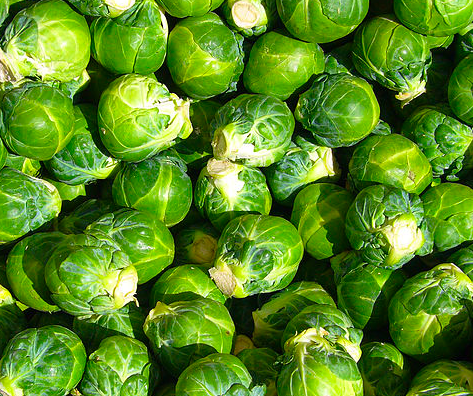Sprouted
Brussels sprouts are little buds from a type of cabbage which, themselves, resemble miniature cabbages. They’re edible, but if you are like millions of children worldwide, you’d probably not admit to that fact. There’s a reason for this. Brussels sprouts contain a chemical compound in them which triggers a response from the bitter-detecting taste buds on our tongues. And as Popular Science notes, we lose taste buds as we age, and the bitter taste therefore isn’t as strong as we get older. But children take the full brunt of the bitterness. Further, PopSci argues, children’s aversion to bitter foods isn’t just stubbornness, but perhaps evolutionary — the overwhelming taste signalling, perhaps, a toxin in the food being eaten. (It may be true, too: if you eat too much cabbage, your body may have difficulty absorbing iodine.)
But what about us grown ups who still don’t like Brussels sprouts? What’s our excuse? Turns out, it may be genetics.
As reported by the BBC, a typical person has “25 types of bitter receptors” on their tongues. But some people — “due to their genetic make-up,” as stated by Dr. Lisa Methven, a food and nutritional services professor quoted by the BBC — have more. Dr. Methven estimates that these people are super-sensitive to bitter foods — “they experience the bitter tasted up to 60 times higher than someone with an average number of taste buds.” Understandably, these people typically hate Brussels sprouts.
But there’s a flip side. As reported by the Telegraph, some people have a genetic mutation which blocks the bitterness entirely. And the mutation is not all that rare. The Telegraph puts it at about fifty percent of the world’s population while DNA analysis startup 23andMe says that about 25% of people are, in their words, “taste-blind” to bitter tastes. So, yes, some people will gladly eat their Brussels sprouts — because they can’t taste them.
Bonus fact: Brussels sprouts aren’t unique here. Cilantro (also called coriander), an herb, evokes a different response from different people, based on the genetic makeup of the would-be eater. But in this case, it isn’t the taste buds which are causing the problem — it’s the nose. As NPR reported, a small but sizable group of people are able to detect the odor emitted by an organic compound in the herb (unsaturated aldehydes) which makes the cilantro “taste” like soap.
From the Archives: Telling Thyme: How herbs and spices can be used as a clock.
Related: Spicy Brussels sprouts in a jar. (Yes, spicy. Yes, in a jar.)

